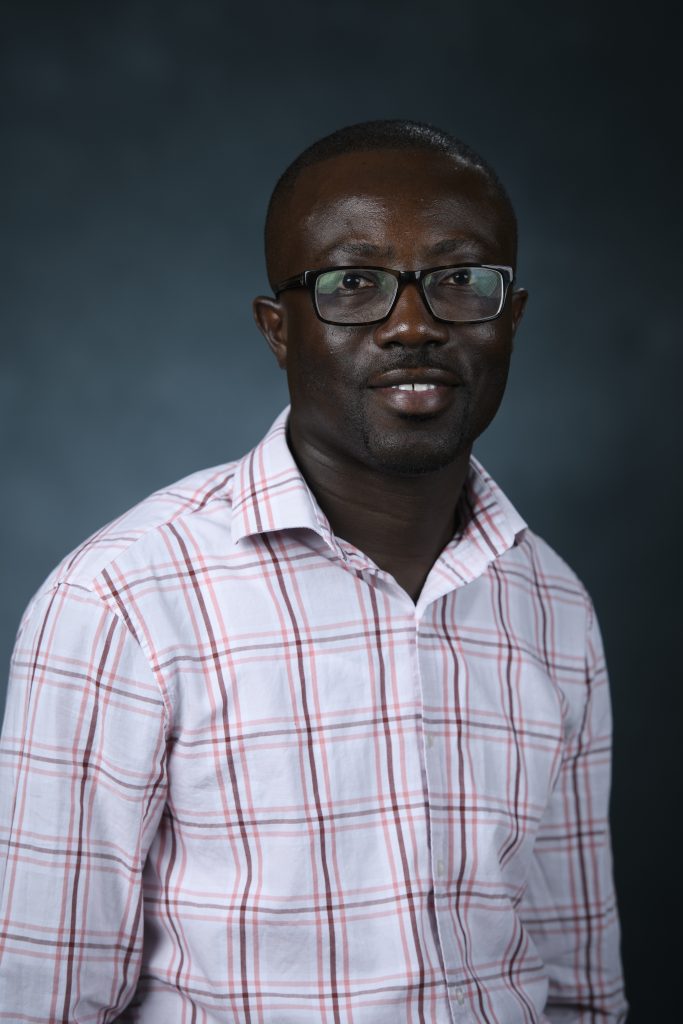Sarah Isom Fellows in Applied Sciences Present Research on Gender and Sexuality
Faculty expand research on police criminality and reproductive justice
OXFORD, Miss. – Fellows at the Sarah Isom Center for Women and Gender Studies at the University of Mississippi in Applied Sciences recently presented their studies and new updates to their research projects at a virtual poster session.
Fellows in the School of Applied Sciences, Francis Danso Boateng, assistant professor of legal studies, and Tess Lefmann, assistant professor of social work, presented their research about female police officer criminality and reproductive justice.

“Both Dr. Boateng and Dr. Lefmann are studying issues related to gender and sexuality that have immediate, real-world consequences,” said Jaime Harker, director of the Sarah Isom Center. “Their focus on data, collected through rigorous, research-based methods, is sorely needed as we grapple with complicated issues in our society at large. The Isom Center is proud to support their research.”
Boateng’s research focuses on female police officer’s criminality, specifically designed to investigate into the extent of crime committed by these officers. The study has two objectives – to understand the nature of female officers’ criminal behavior and to explore organizational effects on their criminality.
“Research in police female criminality is important because such endeavors provide insights for understanding the typical female officer, and also serves as a springboard for the development of a holistic policy initiative to address the issue of police misconduct in the country,” said Boateng. “Without research focusing on female officer criminality, misconduct related policies will always be developed with male officers in mind; and these policies will have little effect on female officers.”
Boateng’s preliminary research found that female police officers are more likely to commit an economically motivated crime or an alcohol related crime than male police officers. On the other hand, male officers are more likely to commit violent or sex-related crimes.
Boateng will now begin to research the different factors that influence male and female officer’s criminality.

Lefmann’s research will examine the association between relevant psychosocial factors, like knowledge, myths and misconceptions, and medication abortion in patients from the Lower Mississippi Delta Region of the United States.
“Patients will be surveyed via an electronic survey at a centrally located clinic within the Lower Mississippi Delta Region while waiting for either a surgical or medical abortion and responses will be compared between abortion type, race, and rurality.
The study’s results will inform the design and delivery of educational and support interventions to improve medication abortion uptake in the region.
“My general research focus is on reproductive justice, which puts reproductive rights into the context of lived experiences that occur within social, political, cultural, and economic environments,” Lefmann said. “Reproductive justice converges around human rights, social justice, and women’s well-being, all of which are inherently significant in both the field of social work and gender studies.”
Lefmann hasn’t started collecting data yet, but her study has the ability to help researchers in the field understand psychosocial factors that influence abortion decision-making and will be helpful in promoting effective education and support interventions for those most in need.
Created in 2018, the two-year Isom Fellowship program is designed to support research projects conducted by faculty in the areas of gender and sexuality. The fellowship includes grant-writing support, research assistance and organizing conferences or symposia.
Isom Fellows contribute to the mission of the Isom Center through research, teaching, and service. Boateng and Lefmann are both part of the 2019-2020 cohort.
For more information about the School of Applied Sciences, visit sas.olemiss.edu. For more information about the Sarah Isom Center for Women and Gender Studies, visit: https://sarahisomcenter.org.
By Meaghan Flores